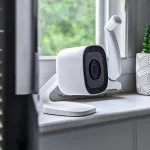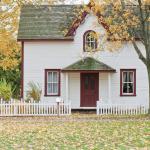Guide For Buying A Gun For Home Safety
Have you ever considered buying a gun for home defense? If so, you're not alone. In fact, many people feel safer with a firearm in their homes. However, there are many factors to consider before making this decision. In this guide, we'll cover everything from the different types of guns available to what ammunition is best suited to your needs. By the end of this article, you'll know whether owning a gun makes sense for your situation—and if so, which specific type you should buy.
Determine If You Need A Gun For Home Defense
Before you even think about purchasing a firearm, it's important to determine if you're a good candidate for owning one. If you live in a high-crime area and have family members who could possibly be at risk, then yes—owning a gun would be beneficial.
Once you've decided that having some sort of weapon might help keep your family safe from harm, it's time to figure out which type of gun is right for you. Plus, how they're different than other types of weapons out there.
Consider What Type Of Gun Is Right For Home Defense
When it comes to deciding what type of gun is right for home defense, there are many factors to take into consideration. A handgun may be a good choice if you have limited space or prefer a single shot over a semi-automatic. However, handguns are not as easy to use or as accurate as long guns (rifles and shotguns). If you want something that can fire multiple shots quickly and accurately with less training, then consider a long gun such as an AR 15 barrel rifle or shotgun.
There are pros and cons of each type of firearm, but it's important to make sure that whatever you choose fits your needs before committing yourself to anything permanent—especially if the budget is tight.
Review Features of Your Gun
Now that you know what guns are available and how they work, it's time to take a closer look at the features of your prospective gun. You should consider the following:
- Weight: A lightweight gun will be easier to handle than a heavy one.
- Comfort: Some guns can be uncomfortable in your hand if they're too small or too large. However, this is usually not a problem with well-made modern weapons that have been ergonomically designed for comfort and ease of use.
- Accuracy depends on factors like your own marksmanship skills and environmental conditions (elements such as wind speed). But generally speaking, long-barreled weapons tend to be more accurate than short ones due to their higher velocity (speed).
Look Into Safety Devices
Safety devices can help prevent accidents. A good safety device is one that prevents an accidental discharge of the firearm by making it impossible for someone to pull the trigger when not ready or authorized to do so.
Besides, safety devices can help prevent the unauthorized use of a firearm. Just as a security system helps protect your home, a gun with a safety device helps protect against unauthorized use. They also work best at avoiding accidental discharge during cleaning or transport, which is especially important if you have children in your home who may come across this weapon while playing.
Choose a Caliber and Bullet Weight
The caliber of your gun refers to the diameter or size of its bullets. The larger the caliber, the heavier and more powerful a bullet can be. In general, the heavier and bigger your ammunition is, the more damage it will do to your target (and anything else in its path). If you're looking for something that packs some punch, look for ammunition loaded with large calibers.
Bullet weight also plays an important role in determining how much damage will be done upon impact with a target. The heavier the bullet is, the more force it will have upon impact. A lighter bullet might not penetrate as deeply into your target and may only cause superficial damage.
Do lots of research and practice before you buy a gun for home defense
Once you've decided to buy a gun for home defense, it's important to do lots of research and practice before you actually purchase the firearm. You'll want to know everything about the gun, from its features and capabilities to how much ammunition it holds. The more information you have, the better equipped you'll be when making an informed choice about which gun is right for your situation.
There is also a range of facilities where you can go and practice different shooting firearms. So, when it comes time to make a purchase or pass judgment on someone else's recommendations, at least part of this process will already be familiar territory. This gives shoppers who may not have had much experience with guns before some extra confidence in their ability as shooters—which will help them feel more confident about purchasing whichever weapon they choose in the end.
Conclusion
Hopefully, this guide has helped you to understand the pros and cons of owning a gun for home defense. If you’re still unsure whether it’s right for your situation, we recommend doing a lot more research. Remember that there are many factors that go into choosing a gun—from caliber choice to safety features—and each one may affect whether or not your firearm is right for home defense purposes. If at all possible, take some time to try out different types of weapons before making any final decisions.
More to Read:
Previous Posts:




